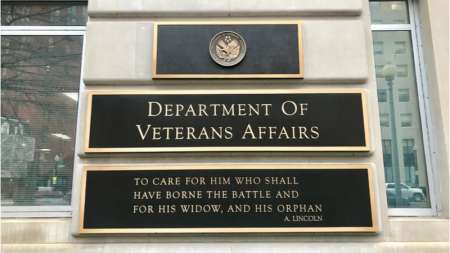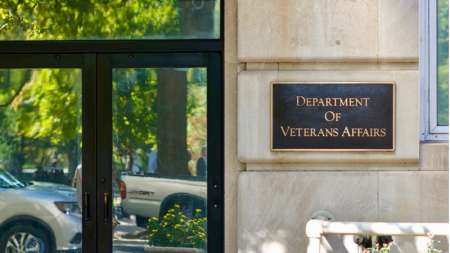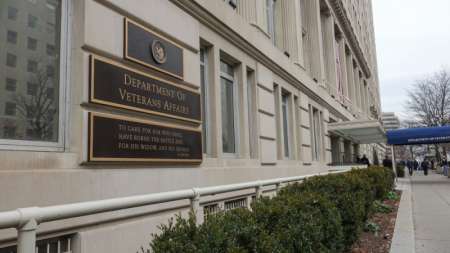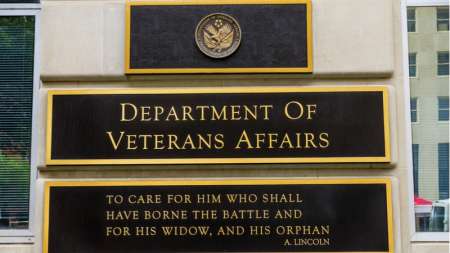As the COVID-19 pandemic continues into autumn, the Department of Veterans Affairs (VA) has continued its effort to support veterans in crisis by partnering with customer experience management provider Medallia to launch the Veterans Signals program. […]
The Department of Veterans Affairs (VA) is launching several real-time customer experience surveys on its websites to monitor feedback from veterans on their use of VA.gov, according to the agency’s September 2020 President’s Management Agenda (PMA) update. […]
A Government Accountability Office (GAO) official said on Sept. 16 that the Department of Veterans Affairs (VA) is taking action on several major IT modernization and cybersecurity issues that GAO has flagged in recent years, but that the agency still has a lot of work to do to address many of them. […]
In the wake of a data breach at the Department of Veterans Affairs (VA) that exposed the personal information of 46,000 veterans, Deputy CIO and Principal Assistant Secretary Dominic Cussatt highlighted data security and privacy to serve the veteran community as a key tenet of the agency’s transformation efforts. […]
Data offers extraordinary power – and no two organizations harness this power better than the Department of Veterans Affairs (VA) and the Department of Energy’s Oak Ridge National Laboratory (ORNL). These two groups rallied around a shared goal – to leverage technology to improve the lives of veterans and citizens alike. […]
The Department of Veterans Affairs (VA) announced today that an unauthorized actor entered its Financial Services Center database and accessed the personal information of 46,000 veterans. […]
The Veterans Benefits Administration (VBA) has automated some processes to streamline administering assistance to veterans, but according to Under Secretary for Benefits Paul Lawrence, the agency’s customer-centric approach to AI and robotic process automation (RPA) is what makes it so successful. […]
Federal agency and private-sector healthcare officials agreed this week that the sharp increase in delivery of telehealth services during the coronavirus pandemic has advanced state of the art in service delivery, along with the need to ramp up cybersecurity protections. […]
The Department of Veterans Affairs (VA) has launched a new electronic virtual assistant (e-VA) to help veterans connect with agency counselors and answer basic questions. […]
The Department of Veterans Affairs (VA) released new COVID-19 infection rate numbers today, indicating a decrease in virus spread because of the agency’s emphasis on digital screening and telehealth services. […]
The Department of Veterans Affairs (VA) has launched a new scheduling tool as a part of its electronic health record modernization (EHRM) efforts to streamline its appointment scheduling process for providers. […]
The Department of Veterans Affairs (VA) is seeking an in-depth cybersecurity audit of its Financial Services Center to analyze its compliance with Federal statutes, how the agency is adapting processes to support compliance, and cybersecurity sustainment across VA. […]
New data from the Department of Veterans Affairs (VA) shows a substantial increase in the use of online VA healthcare tools amidst the COVID-19 pandemic and stay-at-home orders. […]
The U.S. Department of Veterans Affairs (VA) has experienced delays in converting facilities to its new electronic health record (EHR) capabilities due to the COVID-19 pandemic, but is now targeting October to implement the changes. […]
The Department of Veterans Affairs (VA) Office of Inspector General (OIG) recently reviewed usage health information exchanges (HIEs) at 48 VA facilities and community providers for possible barriers to their use. […]
On July 30, the Senate passed the Department of Veterans Affairs (VA) Information Technology Reform Act, which would improve VA management of IT projects and investments, among other things. […]
The Department of Veterans Affairs (VA) is implementing a national digital divide consult as a part of its efforts to ensure that veterans without broadband connectivity can access necessary telehealth services, an agency official confirmed at a July 29 Senate Veterans’ Affairs Committee hearing. […]
The Department of Veterans Affairs Office of Information and Technology and Loan Guaranty Service awarded a contract worth up to $328 million to Accenture to modernize the VA’s home loan program. […]
Technologists responsible for the website of the Department of Veterans Affairs and other government websites emphasized the need for accessibility, ensuring that no one is excluded from access. […]
The Departments of Veteran Affairs (VA), Health and Human Services (HHS), and Energy are partnering on a new initiative to share COVID-19 health data to enable the research and expertise on the virus. […]
The Department of Veterans Affairs (VA) announced July 20 that CIO James Gfrerer swore in Todd Simpson as deputy assistant secretary for DevSecOps. […]
Per a July 16 inspector general (IG) report, the Department of Veterans Affairs (VA) saw use of VA Video Connect increase from 79 calls per week to over 1,100 per week at just one of its facilities during the coronavirus pandemic, despite some bandwidth and scheduling issues reported by facility leaders. […]
AI is transforming the way Federal agencies complete mission objectives, and as the technology becomes more effective and efficient, agency leaders are seeking to utilize AI to reshape the future of government work. […]
As part of the President’s Management Agenda (PMA), the Department of Veterans Affairs (VA) is tacking to major IT priorities – improving the veteran experience with VA.gov and expanding telehealth services. As part of its July update, the Department reported on how the VA is progressing towards achieving its agency priority goals. […]
The Department of Veterans Affairs (VA) is seeking robotics process automation (RPA) to reduce its electronic health record (EHR) backlog, reduce manual tasks, and increase the traceability of VA’s program. […]
The House Appropriations Subcommittee on Military Construction, Veterans Affairs, and Related Agencies approved its Fiscal Year 2021 funding legislation for the Department of Veterans Affairs (VA) by voice vote today. The bill features a 12.4 percent increase in IT modernization funding for the agency. […]
Federal agencies’ total spend for COVID-19-related purchases has cooled in the past month, decreasing by over $1 billion due to changed contract awards, according to data obtained from the Federal Procurement Data System. […]
NSF’s CIO Dorothy Aronson said moving forward, lessons learned from the pandemic “can’t be unlearned.” “We probably will continue to be much more of a virtual organization in the future than we had been in the past,” she said. […]
As the COVID-19 pandemic made it increasingly difficult for veterans to access in-person healthcare services, the Department of Veterans Affairs (VA) quickly scaled its existing telehealth capabilities to accommodate more patients. Now, per several VA officials, the agency is planning to continue investments in and accessibility to its virtual health services even after the pandemic winds down. […]
Just over two months after the Coronavirus Aid, Relief, and Economic Security (CARES) Act, officials at the Veterans Health Administration (VHA) and the National Archives and Records Administration (NARA) credit the legislation with expediating the acquisition process to ease the telework transition. […]














